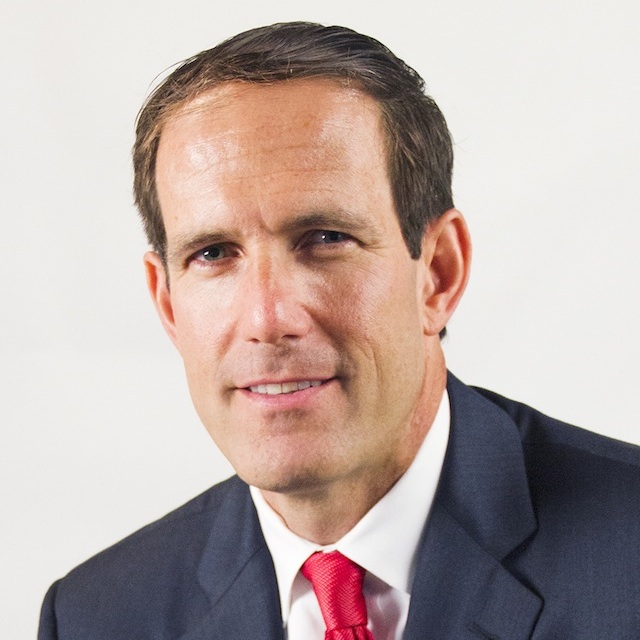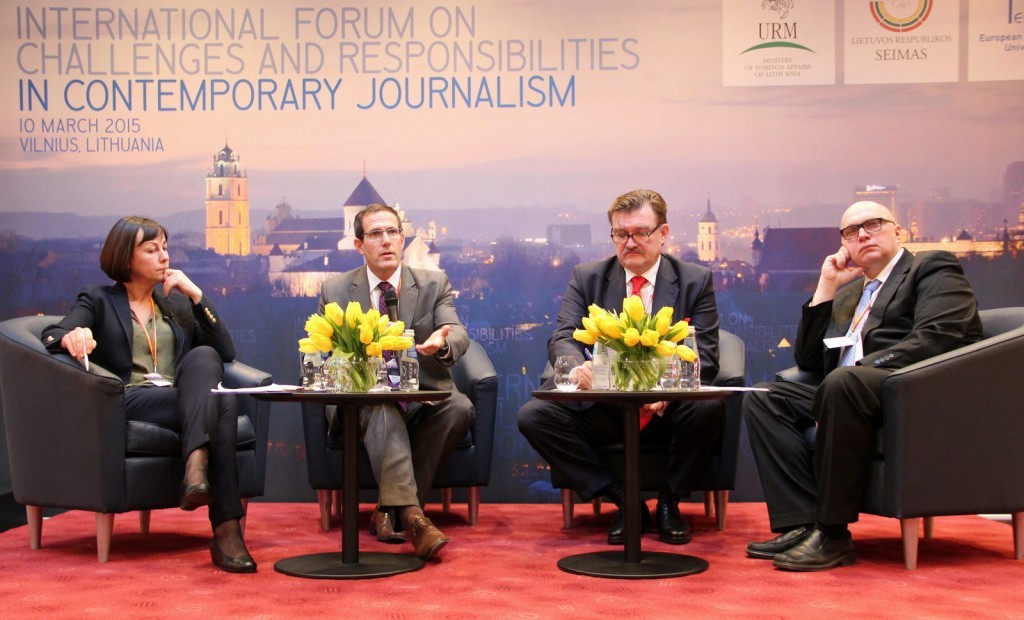BBG Watch Media
The goal of Kremlin propaganda “is to create chaos and confusion, undermine the media, and cause dissent against any policy the Kremlin opposes,” Broadcasting Board of Governors (BBG) Governor Matt Armstrong said in Vilnius, Lithuania. Armstrong spoke on March 10, 2015 at at the “International Forum on Challenges and Responsibilities in Contemporary Journalism,” which was cohosted by Lithuanian Ministry of Foreign Affairs, Seimas (Parliament), and European Humanities University.
###
BBG PRESS RELEASE
Governor Armstrong Speaks At International Forums In Lithuania
(L-R): Rita Miliūtė, Governor Matt Armstrong, Evgeny Kiselev, Jan Machecek Photo credit: Lithuanian Ministry of Foreign Affairs
MARCH 12, 2015
BBG member Matt Armstrong spoke earlier this week at the “International Forum on Challenges and Responsibilities in Contemporary Journalism,” which was cohosted by Lithuanian Ministry of Foreign Affairs, Seimas (Parliament), and European Humanities University. The March 10 event included experts from the media, diplomacy, and think tanks and was convened to coincide with Lithuania’s 25th anniversary of independence from the Soviet Union.
In his remarks Armstrong emphasized the importance of media literacy and the media’s role of informing and empowering audiences. “Providing context is a responsibility of journalists,” he stated when describing the importance of balanced reporting particularly on subjects when journalists have evidence of dissonance.
Armstrong also joined a March 9 panel with European experts from defense, academia and diplomacy at a “Friends of Ukraine” event sponsored by the Lithuanian Ministry of Foreign Affairs. During the discussion, he outlined the difference between the propaganda that is disseminated by ISIL and that being produced by the Kremlin.
“Da’eash [ISIL] has a relatively narrow audience and conducts outreach primarily for one or two purposes, recruitment or to encourage violent acts against their perceived enemy,” observed Armstrong. “Kremlin propaganda, on the other hand, is much more inclusive; its goal is to create chaos and confusion, undermine the media, and cause dissent against any policy the Kremlin opposes.
He added that when addressing issues of propaganda, regardless of source, it is important to determine not only what the messages are, but why audiences listen.”

